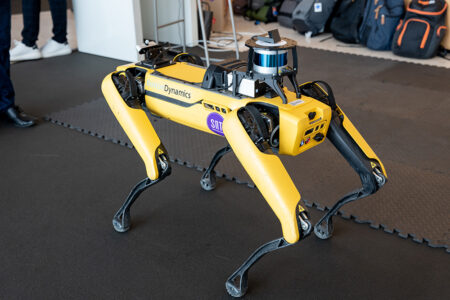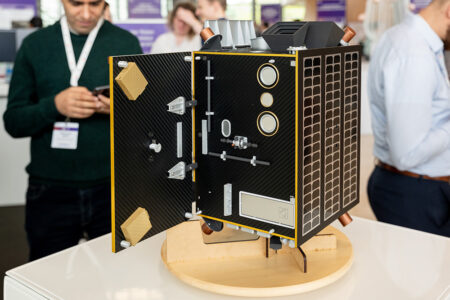Digital technologies such as artificial intelligence are propelling rapid innovation. They enable scientific discoveries that human intelligence alone could not achieve and find new solutions to pressing issues. “We need to address the challenges of society, but no one can find the answers to the big questions on their own. Collaboration is a must,” said Professor Jens Kreisel, Rector of the University of Luxembourg, when speaking at the 2024 SnT Partnership Day.
No one can find the answers to the big questions on their own. Collaboration is a must.
The Interdisciplinary Centre for Security, Reliability and Trust (SnT) is one of the university’s strategic resources to stimulate cooperation between researchers and businesses and generate scientific results that benefit the economy and society at large. Since its establishment in 2009, the centre has built a critical mass of around 500 experts in IT from almost 70 different countries and created an ecosystem where, according to the Rector, “we cherish scientific excellence and input from our partners.”
Targeting business challenges
 The SnT collaborates with public or private entities that have business challenges without a currently available solution. Each partnership agreement involves a joint multiannual research project with concrete outcomes, with the funding split 50/50 between the partner and the university. “What makes the SnT unique is not only that we are successful, but that we address key research topics that have a real interest for our partners,” Professor Yves Le Traon, SnT Director, pointed out.
The SnT collaborates with public or private entities that have business challenges without a currently available solution. Each partnership agreement involves a joint multiannual research project with concrete outcomes, with the funding split 50/50 between the partner and the university. “What makes the SnT unique is not only that we are successful, but that we address key research topics that have a real interest for our partners,” Professor Yves Le Traon, SnT Director, pointed out.
A typical project outcome is a prototype that works in the partner’s real environment. In many cases, the partner is also interested in recruiting the scientific experts who have worked on the project once it comes to an end. In return, the centre’s researchers can work with real-world challenges, get access to pertinent data and use the partner’s systems to test their research results. These mutual benefits ensure a high level of commitment from both sides.
What makes the SnT unique is not only that we are successful, but that we address key research topics that have a real interest for our partners.
The partnership programme includes today 67 members, spanning from startups to big corporations such as PayPal, SES and Huawei and government bodies. The partners are located in Luxembourg and around the world.
Fintech, cybersecurity, space, autonomous vehicles
The research activities of the SnT focus on four priority areas:
- Interdisciplinary cybersecurity solutions across multiple domains to ensure secure and resilient operations and communications
- Compliant, secure and trustworthy ICT solutions for the financial, legal and insurance sectors
- Efficient, secure and safe solutions for connected internet of things systems and autonomous vehicles
- Space systems in the fields of, for example, satellite communications, autonomous systems, orbital and planetary robotics and mission-critical software
“Cybersecurity is a particular challenge,” said Professor Kreisel, referring to both criminal activity and geopolitical attacks. “We take this very seriously and it is one of the SnT’s main research fields.” He also pointed out that the SnT and the University of Luxembourg’s Faculty of Science, Technology and Medicine host a Competence Hub in Research in Cybersecurity and Cyber Defence, set up in partnership with the Luxembourg Directorate of Defence.
During the Partnership Day, the SnT also announced a new cutting-edge research programme, “Autonomous systems for Land, Air and Space”, which is co-funded by the Luxembourg National Research Fund. Its industrial partners include, among others, eBus Competence Centre, Gradel, IEE and Telindus. It will focus on key areas such as energy optimisation, orchestration of autonomous systems and cybersecurity.
Research excellence
 The University of Luxembourg stands out for its achievements in computer science, for which it is among the top 125 universities in the world according to the Times Higher Education World University Ranking.
The University of Luxembourg stands out for its achievements in computer science, for which it is among the top 125 universities in the world according to the Times Higher Education World University Ranking.
“Luxembourg has invested much over the past two decades to become such a centre of excellence for research and innovation,” said Professor Maria Leptin, President of the European Research Council (ERC), during her keynote speech at the SnT Partnership Day. “We need to reform and restructure our higher education and research systems to make them fit for the rest of the 21st century and I want to recognise the efforts that Luxembourg is already making. This is a central element in the necessary reform of our economies.”
